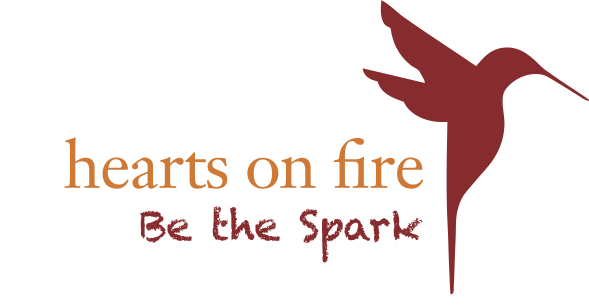Leila Janah | Founder and CEO/Samasource and LXMI
A Beautiful Mind
For Leila Chirayath Janah, social justice is a four-letter word: work. It is a message she absorbed at the dinner table growing up. Leila’s parents were educated, intellectual immigrants from Calcutta, India, who arrived in America, Leila says, “with little more than a suitcase and dreams of a better life.” For her mother, that meant working at a fast food restaurant to support the family until her father could find work.
Her father sensitized Leila and her brother to issues of inequity and told them that they had a duty to do something about it as they got older. It was a message Leila took to heart.
“My dad believes that all people have the right to dignity and should be treated equally. I learned so much from him about helping people.”
In middle school, Leila joined the local chapter of the ACLU to help push for adding an advanced placement course at an inner city high school, the kind of educational offering students in affluent school districts take for granted.
“This was my first exposure to social justice issues and to the systemic inequalities that we have baked into our educational and economic systems,” says Leila. “It was a real eye opener for me.”
Ultimately, Leila was able to attend a charter school in Los Angeles, where her passion for addressing the consequences of injustice and inequality flourished. It was an important first step on the road she is traveling now—but first she wanted to get a taste of another world.
“I was growing more and more discontented with life in suburban L.A. I had never seen a developing country. I wanted adventure.”
In 2000, she headed off to Ghana in Africa as part of a program to teach blind children to read. Leila says she didn’t know anything about teaching or about braille. But she knew she could help somehow. As it turned out, Leila learned more than her students.
“I had never experienced anything like the poverty I saw there. I could feel the intense suffering caused by poverty, by seeing what people had to do every day to survive. It helped me to understand how poverty oppresses people.”
Even more shocking to Leila was the realization that her young students were equally as capable as any she had ever met. They had just been born in the wrong place.
“Life really is a birth lottery,” Leila says. “I left Africa with a sense of urgency to do something about poverty.”
After graduating from Harvard, Leila began her unique journey to help reduce poverty in developing countries, not by offering hand- outs, but by providing jobs to those who had the willingness and the talent to work but little opportunity. “Give work, not aid” would become her mantra.
“You see these really highly qualified young people desperate for a chance, who are extremely talented and who, after high school, have no jobs, and end up working in a quarry or selling things by the side of the road or brewing local moonshine.”
In 2008, Leila founded Samasource, a non-profit business that connects marginalized women and youth to dignified work via the Internet. It moves people out of poverty by providing work that pays a sustainable, living wage in places with high rates of unemployment, including slums and rural communities in East Africa, South Asia, and the Americas.
“I think the biggest untapped resource in the world is the brain power at the bottom of the economic pyramid that we’re not connecting to the global economy,” says Leila.
Over the past decade, Samasource has helped over 50,000 people lift themselves out of poverty by sourcing data projects from some of the world’s largest companies, like Microsoft and Google.
And Leila says that the Samasource model is proving to be a surefire success. On average people who start out with Samasource improve their baseline income by over 400%. And the good news doesn’t stop there.
“The beauty of digital work is that once you show people that there are all these things they can do remotely, they start finding their own work on platforms like Upwork.”
Recognizing a need closer to home, Leila also launched Samaschool in the U.S. that provides digital skills and job readiness training to enable low-income people to find a path into the workforce.
And in line with the innovative thinker that she is, Leila also founded a for- profit venture called LXMI, a high-end cosmetics line that enlists poor African people, predominantly women, to grow, harvest, and process its ingredients in exchange for a fair wage. Her goal is to use some of LXMI’s profits to fund Samasource’s current operations as well as give her additional capital to find new ways to fight poverty.
“I firmly believe that luxury products should damn well do some good in the world, not just line the pockets of companies,” says Leila. Our motto is ‘Beauty for Humanity.’”
For Leila Janah, it’s the product of a beautiful mind working to make a more beautiful world for everyone.
For her continuing innovative work to reduce poverty through jobs creation, Leila has been named Social Entrepreneur of the Year by the Social Enterprise Alliance in 2011, one of Fortune’s Most Powerful Women Entrepreneurs in 2013, and she was featured on the cover of Entrepreneur Magazine as one of The 7 Most Powerful Women to Watch in 2014.
Her book “Give Work ” was released in 2017.
She is a sought after speaker, and has been featured widely in the press, including The New York Times, CNN and Forbes, as well as being the cover story on Entrepreneur and Fast Company.




